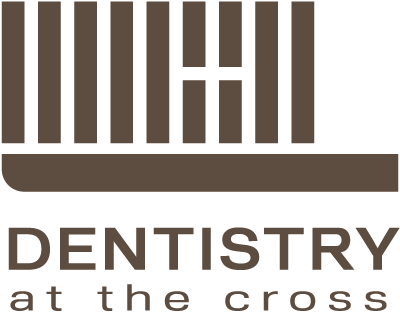Say goodbye to gaps and hello to a dream smile
Supercharge your smile confidence
Have missing teeth left you feeling ‘meh’? Fed up of feeling anxious at the thought of saying “cheese!” Sooo tired of always hiding your smile behind your hand?

Imagine trading your gap for an implant that looks and feels like a natural tooth. You’ll never feel self-conscious about your smile again! Plus, avoid the domino effect of oral health issues that can come from lost teeth.
In as little as an hour, we can place your dental implant in readiness for you to flash your radiant new smile.
Trade your gap for an implant that looks and feels like a natural tooth
Perfect placement
3D x-ray and scan for error-free precise implant placement and a speedier recovery
‘Happy gas’ sedation
A safe and gentle way to ease anxiety
An easy way to pay
Forget financial pressure, with our no-stress payment plans
Dental implants cost
- Dental implants cost
- At our dentist in Potts Point, Sydney this includes a comprehensive oral exam, x-ray, implant placement (with ‘happy gas’), and new tooth. Treatment typically takes between 1-2 hours for a single implant. You’ll be eating, speaking, and smiling confidently in no time!
- From $6500
No-stress payment options
No need to delay treatment due to cost. Enjoy an easy peasy (zero interest) payment plan.
Been ‘putting up’ with a lost tooth or missing teeth because of finance. What if you didn’t have to fret about having the funds upfront?
Our flexible, no-deposit, zero-interest payment plans mean you can restore your smile without stressing about the cost.
No-stress payment options
Feel comfortable in the chair, and afterwards. All major health funds accepted and on-the-spot rebates available.
Restoring your smile doesn’t need to be uncomfortable — not even financially. Flexible, no-deposit, zero-interest payment plans mean you can enjoy your treatment anxiety-free, and so can your bank account.
A
complete smile
in 3 simple steps
Step 1. Judgement-free consultation
We’ll take 3D x-rays and a digital scan and chat you through *everything* you need to know to make sure dental implants are right for you.
Step 2. Dental implant placement
Thanks to Dr Kaur’s careful planning, your new titanium ‘tooth root’ is perfectly placed. Don’t worry, we’ve got solutions so you won’t be left with a gap!
Step 3. Hurray, a new tooth
Come back in 3 months for your final natural-looking, fully-functional tooth to be fitted. Yep, it’s really that easy!
Ready to say hello to your new dentist Potts Point? Get our price list today.

Questions?
Cross a few off
your list here
What are dental implants?
A dental implant is a metal screw that’s placed into the jawbone. This acts as a replacement for natural tooth roots. Once the implant is in place, a crown (fake tooth) is fixed to the top of it. Dental implants can replace one or multiple teeth. And the best part? Dental implants look, feel and function like natural teeth.
What are the benefits of dental implants?
The main benefit of a dental implant is that you can say buh-bye to gaps. (and ‘hello’ self-confidence!) By replacing missing teeth, many people find they can talk more clearly. Plus, you regain your chewing ability. No more avoiding your favourite foods because they’re too difficult to eat. But more importantly, a missing tooth can lead to jawbone loss and deterioration. Dental implants not only replace your missing teeth, they also stimulate natural bone. This helps prevent bone loss and a sunken appearance in the face.
What’s involved in the dental implant procedure?
Confused about the dental implant procedure? No worries, here’s what you need to know.
- The procedure starts with a consultation. This will include scans of the teeth and bones to see if dental implants are right for you. Assuming they are, you’ll get a customised treatment plan — including the costs.
- Digital technology is used to plan the precise placement of the implant. The dental implant surgery itself takes between 1-2 hours. Once the dental implant is placed, you’ll need to wait for the bone to fuse to the implant. This healing process can take from 3 to 6 months. In case you’re wondering, no, you won’t be left with a gap.
- The final phase is to affix your new tooth to the implant. Now you can get on with life with a lovely new smile!
How long do dental implants last?
We’re so glad you asked! A dental implant can last upwards of 30 years. While the replacement tooth (crown) typically lasts 15-20 years (sometimes longer). Taking good care of your dental implants, as you would your natural teeth, with regular check-up and cleans will help you get the most out of your treatment.
Are dental implants painful?
Thanks to the wonder of local anaesthetic, you won’t feel minimal pain during the surgery. It’s normal to experience a little discomfort after the implant has been placed. This is usually easily managed with good old pain relief. And you’ll be glad to hear that for most people, any pain or swelling subsides within a day or two.
What are the risks of dental implants?
As with any surgical procedure, there are risks associated with dental implants. So, what are the risks? Infection, injury to surrounding teeth, sinus damage if an implant in the upper jaw is placed too deeply, and nerve damage. I know how it sounds – scary. The reality is that the risk is very low. And if you choose a reputable dentist, you can trust that you’re in great hands.
Looking for a new dentist? Get our New Patient Guide.
What about dental implant aftercare?
Dental implant aftercare is fairly straightforward. But you should always listen to your dentist’s advice. It’s best to avoid hot or very cold food and drinks for a few days. You’ll also want to steer clear of hard or chewy foods.
It’s essential to keep your mouth clean by rinsing it out after each meal. And don’t forget good oral hygiene. You might have to be a little extra careful when first brushing. Using a small-headed toothbrush with soft bristles can help. You can keep bacteria at bay by swishing a saltwater mouth rinse around your mouth.


